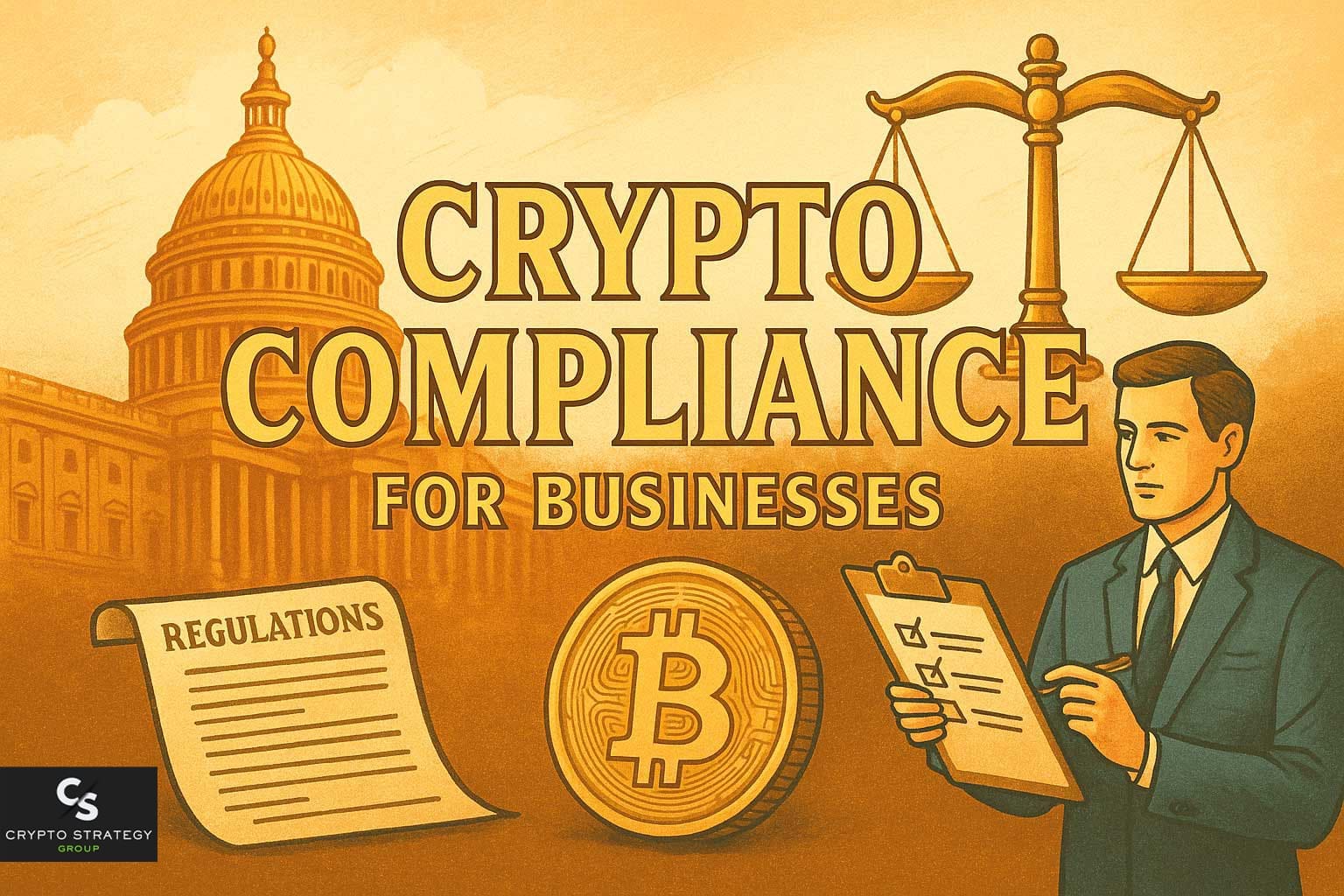Businesses exploring cryptocurrency in 2025 must navigate a shifting regulatory environment, especially under the second Trump administration. This guide consolidates current rules, new developments, and actionable compliance tips tailored for U.S. businesses adopting crypto.
🏛️ Key U.S. Crypto Regulatory Bodies and Requirements
1. Financial Crimes Enforcement Network (FinCEN)
- AML/KYC Compliance: Implement Know Your Customer (KYC) procedures and Anti-Money Laundering (AML) programs as mandated by the Bank Secrecy Act.
- MSB Registration & AML Rules: If your business facilitates crypto transactions, you may be categorized as a Money Services Business (MSB). Registration with FinCEN is required.
📎 FinCEN Guidance on Convertible Virtual Currencies
2. Internal Revenue Service (IRS)
- The IRS treats crypto as property, not currency. This impacts capital gains reporting and accounting.
- File crypto-related gains or losses using Form 8949 and Schedule D.
- Payments to contractors or vendors over $600 in crypto must be reported on Form 1099-NEC.
📎 IRS Virtual Currency Tax Center
3. Securities and Exchange Commission (SEC)
- Digital assets deemed securities fall under SEC regulation.
- Evaluate tokens using the Howey Test to determine if SEC registration is necessary.
📎 SEC Framework for Digital Assets
4. Commodity Futures Trading Commission (CFTC)
- Regulates crypto commodities (e.g., Bitcoin, Ethereum) and crypto derivatives.
📎 CFTC Statement on Virtual Currencies
5. Office of Foreign Assets Control (OFAC)
- Crypto payments must comply with U.S. sanctions laws.
- Conduct address screenings to avoid dealing with restricted countries or entities.
📎 OFAC Compliance Guidelines for Crypto
6. State-by-State Compliance
- 49 U.S. states treat crypto businesses as money transmitters.
- States like New York require specific licensing (e.g., BitLicense).
📎 State Crypto Laws and Licensing Tracker
🏦 2025 Trump Administration Crypto Policy Updates
1. Executive Order 14178 (March 2025)
- Prohibits a U.S. CBDC (Central Bank Digital Currency).
- Mandates development of a federal crypto regulatory framework within 180 days.
📎 Executive Order 14178 – Wikipedia
2. Strategic Bitcoin Reserve
- Created by executive action to establish a federal Bitcoin and crypto reserve, using confiscated or seized digital assets.
📎 Strategic Bitcoin Reserve Coverage
3. SEC and DOJ Enforcement Rollbacks
- The SEC dropped lawsuits against Ripple and Coinbase.
- DOJ disbanded the National Cryptocurrency Enforcement Team.
📎 Reuters Coverage on SEC Dismissals
4. Banking Integration — May 2025 Update
- New rule announced last week: Banks are no longer required to obtain prior approval from federal agencies to offer crypto services.
- This includes holding crypto assets in custody, facilitating crypto payments, or enabling crypto-fiat conversion.
📎 Federal Reserve and OCC Guidance on Crypto Banking
⚠️ Ethical and Legal Risks
- Conflict of Interest: Trump’s involvement in crypto projects (e.g., $TRUMP memecoin) and industry fundraising events has drawn scrutiny.
- Legislative Roadblocks: Bills like the GENIUS Act are stalled due to perceived conflicts with Trump’s own crypto activities.
📎 The Daily Beast – Ethics Concerns
✅ Crypto Compliance Checklist for Businesses
- Register as an MSB (if required) with FinCEN
- Establish AML/KYC protocols and train staff regularly
- Use crypto accounting tools (e.g., CoinLedger, TaxBit)
- File IRS forms for crypto income and payments
- Screen wallets and addresses for OFAC compliance
- Obtain state-specific licenses, including BitLicense if operating in NY
- Choose crypto-friendly banks and remain current on federal banking laws
- Evaluate whether tokens you issue or use are securities




